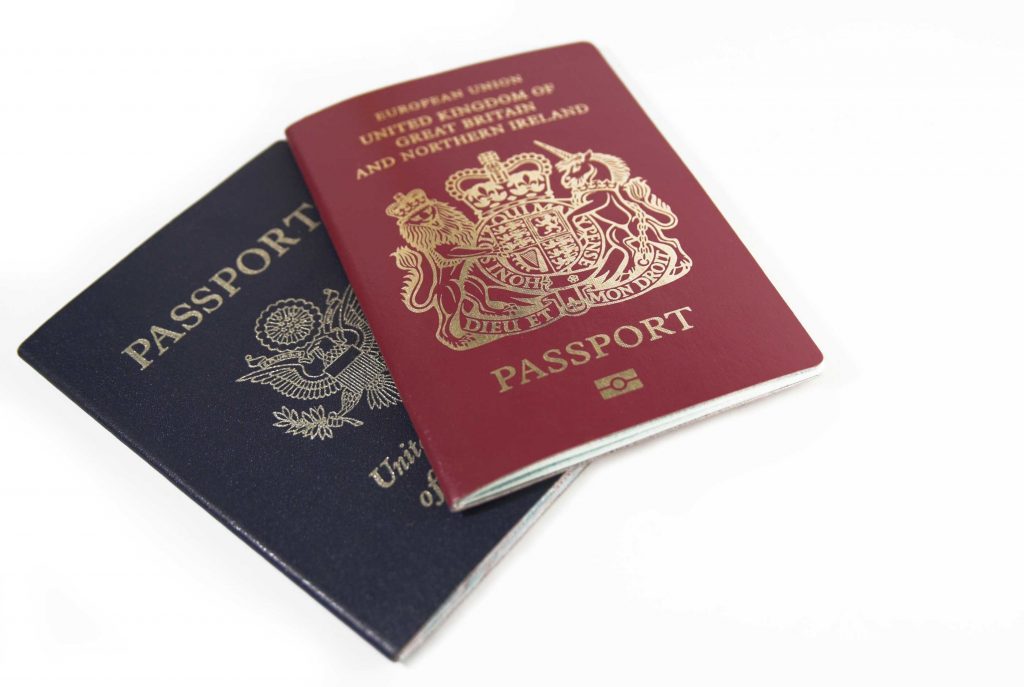
Society has come a long way from being wary towards the concept of dual citizenship. Today, not only is dual citizenship globally welcomed, but it is also ardently sought after. One only has to look at the urgency with which British nationals have been seeking dual citizenship through family ties or naturalisation, so as to bypass the adverse effects of Brexit. While motivations for dual citizenship differ depending on the individual, most people are eager to secure dual citizenship to maintain or obtain travel, residency, health, and work rights.
While many people are legally entitled to dual citizenship from a young age- be it through birth or descent- others strive to earn the right for citizenship in foreign countries. Most countries in fact have instated naturalisation processes through which foreign citizens can successfully become domestic nationals.
A most recent and modern development is the gradual introduction and popularity of citizenship by investment programmes. Such programmes first originated in the Caribbean in the tropical sister islands of St Kitts and Nevis. However, the likes of such programmes can also be found in Europe as well- namely the Granting of Citizenship for Exceptional Services Regulations in Malta. The proliferation of citizenship by investment programmes is of no coincidence, as individuals are becoming increasingly cognizant of the benefits that come with holding a dual citizenship status.
Freedom of Movement
Individuals originating from countries with restricted visa-free access treasure the possession of a second citizenship which allows greater ease of travel. The process of obtaining a visa is, more often than not, a lengthy and tedious process. Having to go through such a process once is tiresome enough, however being constantly roadblocked with visa procedures is close to unbearable, and a waste of precious time and money. For individuals seeking facilitated access to the EU, whether for business or personal reasons, it would be wise to look at a citizenship or residency programme which offers visa-free access to the Schengen area.
A Maltese passport, for instance, grants citizens a remarkable visa-free access to over 180 countries. A Caribbean country like Saint Lucia also has visa-free access to over 150 countries.
Consequently, for non-EU investors with business interests within the EU, obtaining visa-free access to the Schengen area through an investment migration programme ensures freedom of mobility for the rest of their lives, without the hassle of obtaining a Visa. Furthermore, the ultimate motivation for dual citizenship rather than a Golden Visa is that citizenship entitles individuals to esteemed rights enjoyed only by citizens.
Security
Nationals of tumultuous countries are vulnerable to political and economic unrest, violence, terrorism and other distressing situations. For such people, holding a dual citizenship is of deeper significance than it is for those whose primary objective is as simple as facilitated travel.
Therefore, securing a second passport in a peaceful country with a stable and thriving economy provides unparalleled peace of mind to citizens hailing from precarious countries. The motivations for dual citizenship, in this case, have to do with securing a backup plan. Individuals would have the option to reside in a sheltered country with an advanced social and legal infrastructure, a secure and thriving economy, and a stable favourable political climate. Furthermore, this peace of mind can also be extended to the whole family as well as future generations.
Enriched Quality of Life
As a holder of dual citizenship, an individual is automatically exposed to more opportunities. Countries facing continuous struggles in their economic development, pale in comparison to the possibilities offered in more advanced countries such as those in the EU, Canada, Australia, and the US. Obtaining citizenship of an EU member country in particular, vastly broadens the horizons of a non-EU citizen. Dual citizens of the EU are free to travel, reside, work, and study in any EU country. The EU is currently comprised of 27 member countries. Most of these have a robust economy, educational institutions with the highest international standards, and prime quality healthcare.
In contrast, for those who are more inclined towards exotic countries rather than the quintessential European lifestyle, a Caribbean passport is ideal. Nowadays, obtaining a dual citizenship through one of the Caribbean citizenship by investment programmes has become a simple and attractive option. For varying investments, starting even from US$100,000, a person can become a dual citizen of the Caribbean. Such a process benefits both the individual and country in question, since while the individual is granted Caribbean citizenship, the country itself has received valuable investment which is instrumental in the advancement of its economy.
Business Prospects
It is also not unorthodox for investors to seek dual citizenship primarily to enhance their business opportunities. Achieving naturalisation in an EU country is a highly attractive prospect for individuals who want to cast their net wider and accelerate their business.
The motivations for dual citizenship for wealthy investors also include the need for sounder protection against potential financial exposure, data theft, and extortion. In light of threats to safety and security of having personal information leaked to the wrong sources due to lack of regulation and precautions, it is easier to confide in countries with a reputation for stability, security and confidentiality.
Dual citizenship can also serve as an efficient way of maximising and preserving wealth through advantageous tax systems. Citizens of Antigua and Barbuda, for instance, are exempt from taxation on foreign income, wealth, inheritance, gifts, and capital gains. Meanwhile, high-net-worth individuals who are resident but not domiciled in Malta benefit from an attractive remittance-based taxation regime. Not to mention the sheer amount of business incentives available in countries like Malta, including soft loans, innovation aid and start-up schemes, all of which provide additional incentive to become a dual citizen and build a life in such a thriving country.